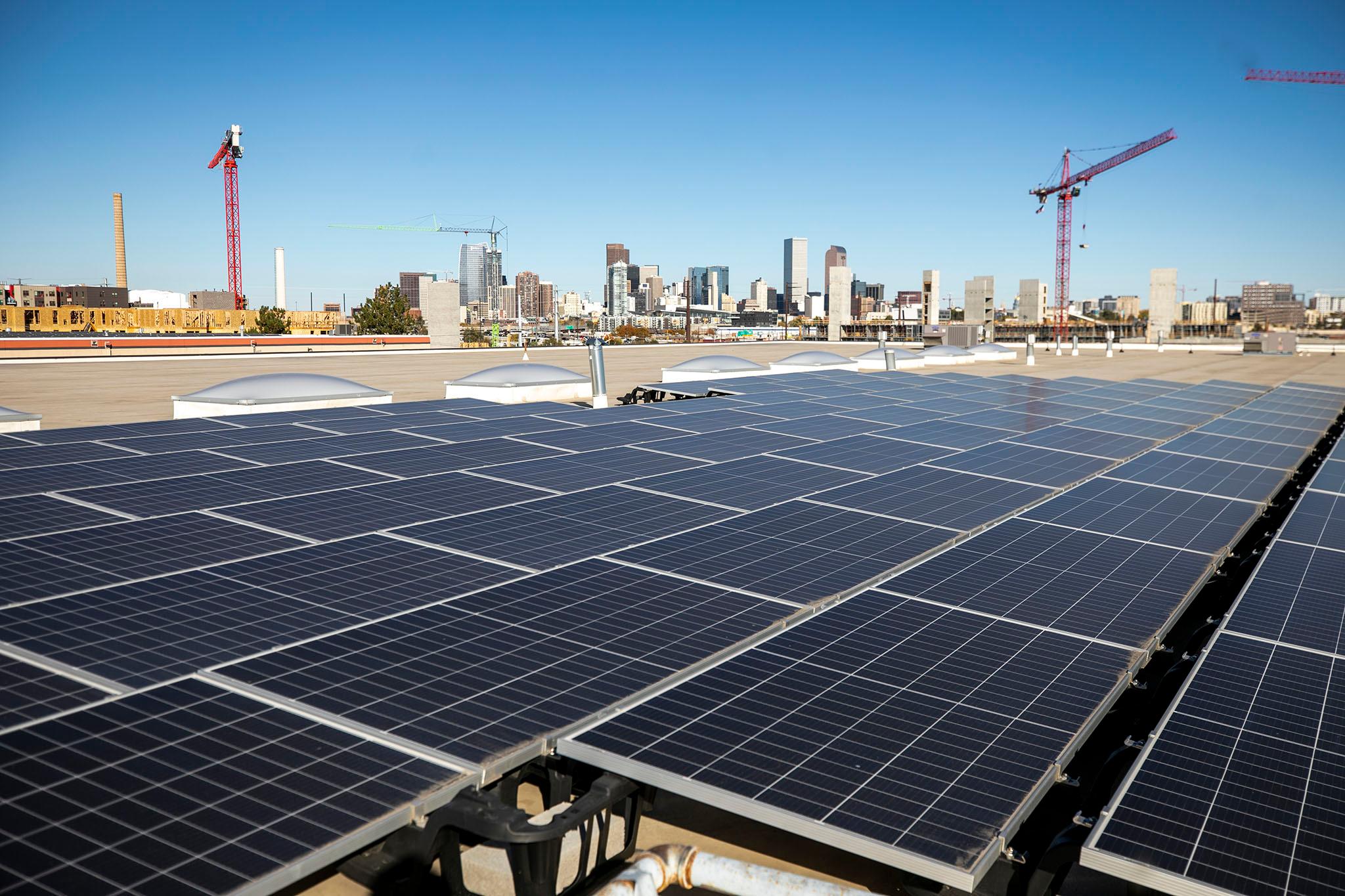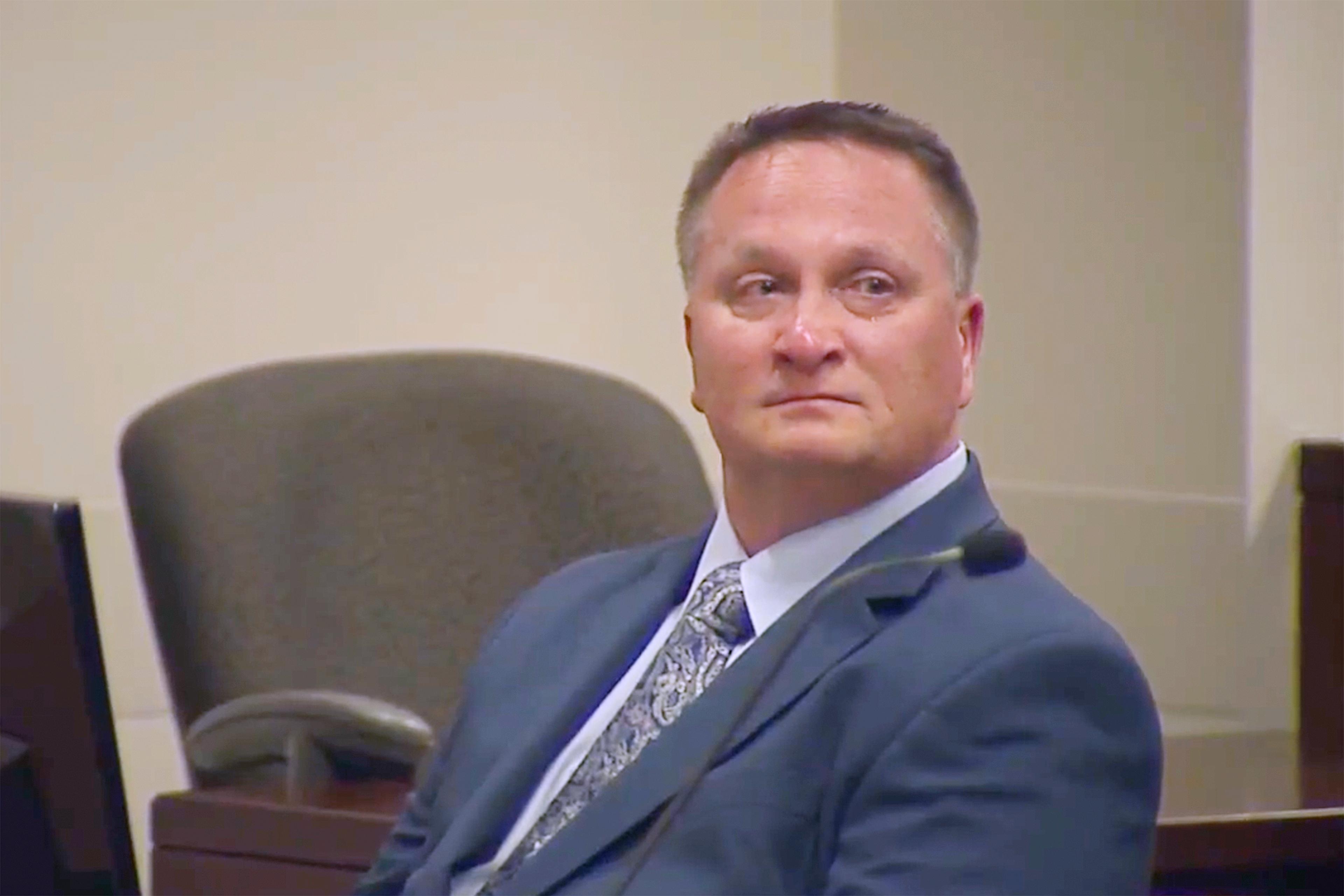It wasn’t so long ago that Colorado’s renewable energy sector seemed to be on top of the world, growing by leaps and bounds. But the headlines this year might make you think it’s hit the skids. Colorado Public Radio’s Megan Verlee has this look at what the recent bad news means for the industry.
[The following is a transcript of Megan Verlee's report]
Reporter Megan Verlee: Flash back a few years, back to when the federal stimulus program was funnelling millions of dollars to renewable energy projects and then-Governor Bill Ritter was making the industry a centerpiece of his administration.
Governor Bill Ritter: "The new energy economy, which did not exist three years ago, continues to be our beacon to a brighter future."
Reporter: Lately the news hasn’t been so bright. Conocophillips pulled the plug on a big renewable research campus in Louisville. GE’s suspended plans for a solar panel plant in Aurora. And Loveland’s Abound Solar declared bankruptcy, defaulting on $60 million in government-backed loans. Those are painful headlines for renewable advocates. But former-governor Ritter is still bullish on renewables today.
Ritter: "That’s, I think, part of any industry that sort of starts and then goes through significant growth, including growing pains."
Reporter: Ritter currently runs the Center for the New Energy Economy at Colorado State University. And he points out that renewable energy has grown to employ more than 10,000 Coloradans in recent years.
Ritter: "The new energy economy should, if it were a person, it should wear a T-shirt that said, 'I survived the Great Recession!'"
Reporter: And if not every company and project survived, well, that’s what happens in new industries, says venture capitalist David Gold. Gold invests mainly in environmentally-friendly technology start-ups. He says all the government attention on renewable energy created a bubble during the recession, when people were looking for a place to invest. But Gold believes the sector can recover.
David Gold: "The bubble has some similarities and certainly differences from the dot-com bubble. And if you look back at the internet era, many of the best companies that were created happened after the bubble burst, not before the bubble, or as the bubble was being created."
Reporter: That doesn’t mean Gold’s putting his firm’s money into renewable energy companies, though. He points out that the low price of natural gas has made it even harder for renewables to compete in the open market. And with the sector still fundamentally dependent on government tax breaks, it’s enough to keep him away.
Gold: "Our view is we take enough risk investing in the businesses, and enough business risk, that we don’t want to take policy risk as well. We’re not going to take both."
Reporter: Recent events drive home just how vulnerable Colorado’s renewable energy sector is to policy changes. Wind turbine manufacturer Vestas laid off 500 Colorado workers this year and cut hours for the remaining employees, all because of concern that Congress won’t renew the wind power tax credit. Vestas spokeswoman Susan Innes.
Susan Innes: "With the uncertainty around the extension of the production tax credit, folks that would normally be building wind projects in 2013 are waiting to see what happens."
Reporter: Until they have that certainty, US orders for turbines have all but dried up. On the state level, alternative energy got a big boost from a law requiring Colorado utilities get up to 30% of their power from renewable sources by 2020. When it passed, the policy immediately boosted demand for wind and solar. But now Xcel and several other utilities are ahead of schedule to meet the goal and don’t need to invest in any more big new projects. Some in the industry want the state to raise the standard again, but Governor John Hickenlooper points out that would drive bills up for everyone.
Governor John Hickenlooper: "And those costs that we spend, they’re not huge but there are more to have renewable energy, do we want more of that, do our citizens want more of that? Well that’s the next step."
Reporter: Renewable energy supporters point out that oil and gas companies also benefit from government help. In any case, Hickenlooper has definitely taken a more hands-off approach with renewables, compared to Ritter’s intense cheerleading. Blake Jones, president of Namaste Solar installation company, says the transition’s been tough on the industry.
Blake Jones: "And I think as a result Colorado’s in danger of losing its leadership position and losing its momentum that was built during the Ritter years and that’s what made Colorado a top five solar market."
Reporter: And in fact, Colorado won’t be in the top 5 next year; other states with more aggressive renewable energy policies are surging ahead.
[Sound of power saw]
Reporter: In Namaste’s warehouse in Boulder, a worker cuts aluminum rails for a rooftop installation. Massive pallets of waiting solar panels loom around him. Those panels cost about half today what they did a few years ago, the result of better manufacturing and increased foreign competition. And that has Jones optimistic for the future, in spite of it all.
Jones: "We’ve just scratched the surface, and I think there’s just so much potential for what solar energy, wind energy, renewable energy is going to do for our economy, for our country, for our environment."
Reporter: But Jones adds that the industry is still going to need help from government, in the form of friendly policies, direct subsidies, and most of all, certainty, in order to reach the potential he foresees.
[Photo: MVerlee/CPR]









